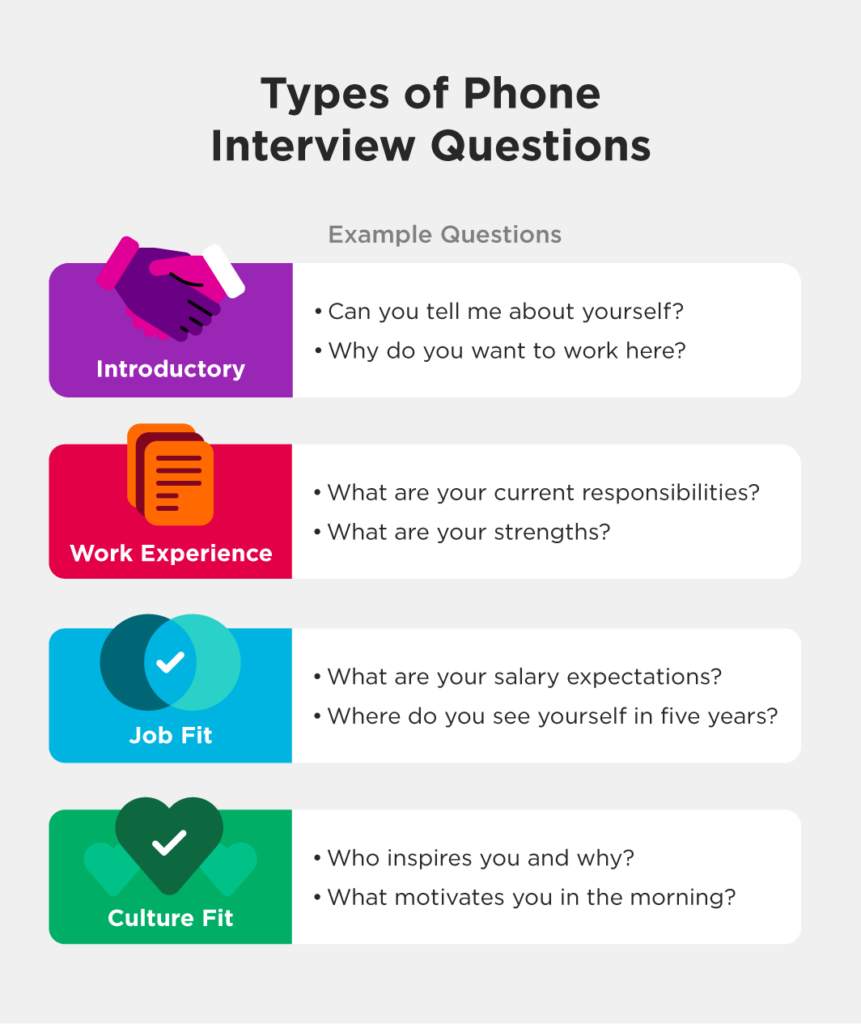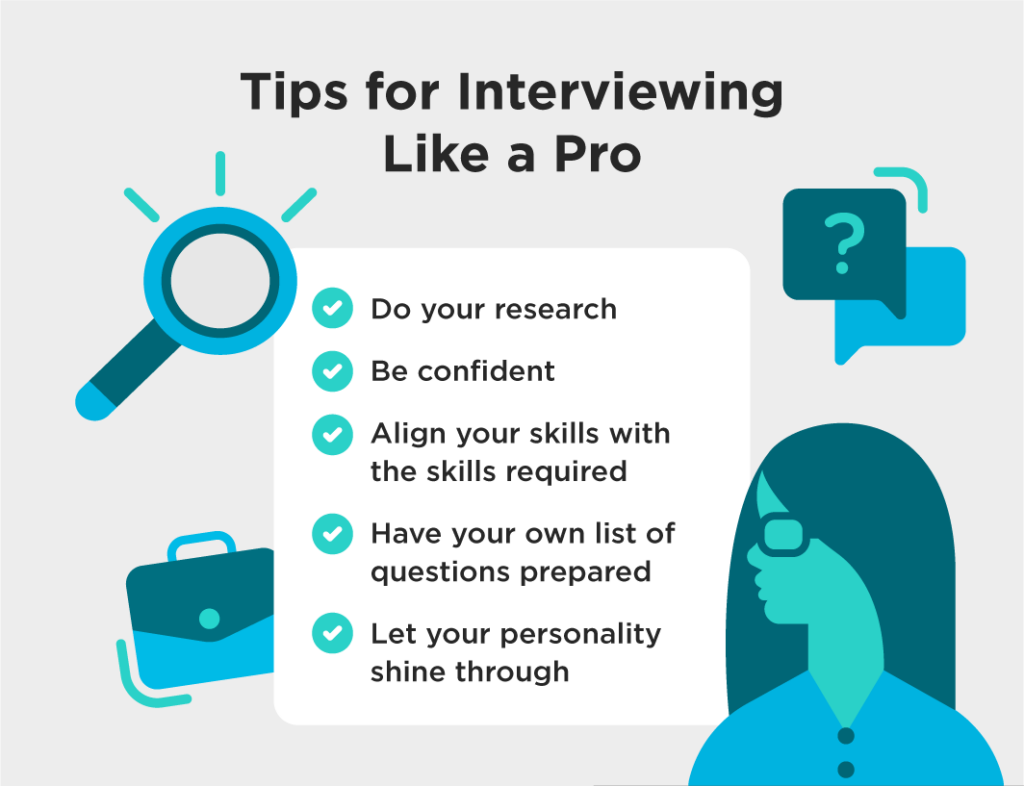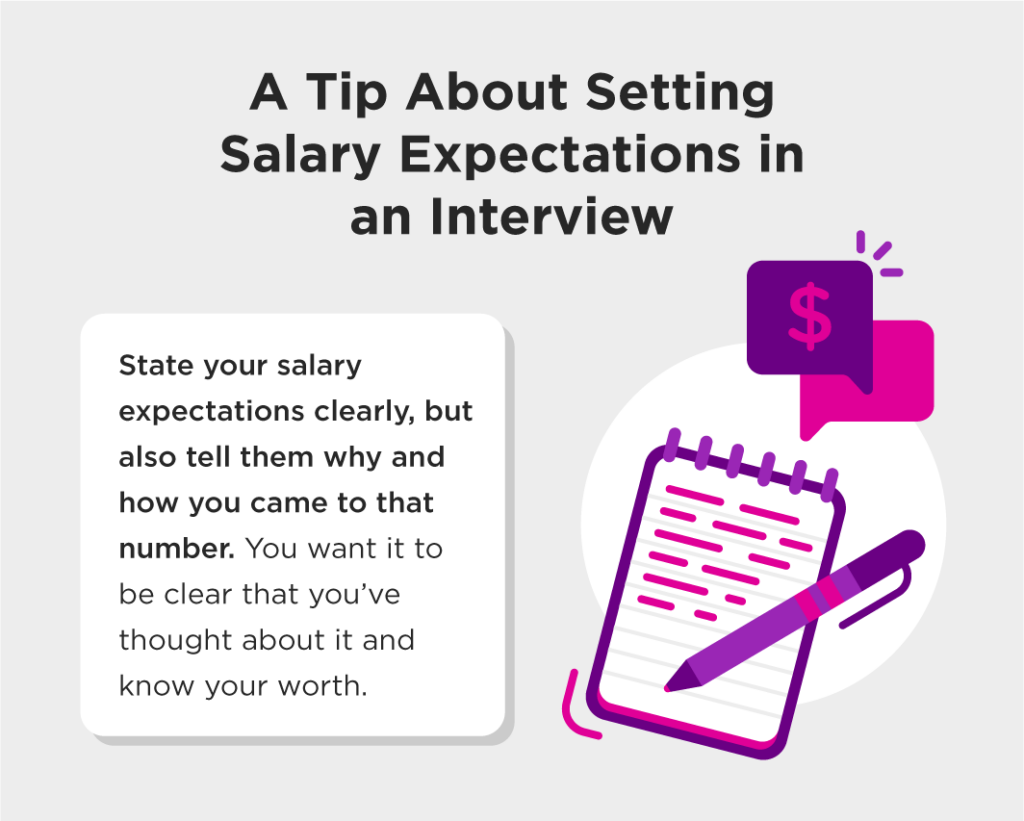23 Phone Interview Questions To Prepare for in 2024 [+ Answers]

quick answer
Discover common phone interview questions and how to answer them so you’re prepared for your interview and make the best impression possible.
In This Article
You’ve been asked to do a phone interview for a new job. Congratulations! You’re one of only 2% of job seekers that get an interview. After the initial excitement wears off, you may be nervous about the types of phone interview questions to expect.
The phone interview is an important part of the hiring process, as it’s your first introduction to the company and your chance to convince the interviewer that you’re the best person for the job.
If you’re looking for a new job, Robertson College’s Workforce Team offers lifelong career support to its students and graduates. The Workforce Team can help you craft your resume, prepare for interviews, and set you up for a meaningful career. Learn more about Robertson College and the Workforce Team here.
Here are 23 phone interview questions you might be asked and how to answer them, so you can go into your interview prepared and confident.
There are many different types of phone interview questions with different purposes. Essentially, the interviewer wants to get to know the applicant better, understand their qualifications, and determine if they are a good fit for the job and organization.
Types of phone interview questions include:

This is one of the most commonly asked phone interview questions. Interviewers are looking for a bit more detail about your background and work experience. While you can add some personal information, generally keep it about your work experience and professional accomplishments.
To answer this phone interview question:
Talking about your passions is a great way to give the interviewer insight into what you care about and how it aligns with the role. The interviewer wants to get a better idea of whether your passions will be a good fit for the organization and work.
To answer this phone interview question:
This question is quite straightforward. Interviewers want to know where job searchers find their postings so they have a better idea of visibility and can continue to share open jobs in places they know candidates will see them.
To answer this phone interview question:
You should know why you want to work for the company before the interviewer asks this question, and it should be more than just wanting a paycheque. This phone interview question is meant to determine your motives for applying and provide an opportunity for you to demonstrate how your values and skills align with the organization. Interviewers also want to see how well you’ve researched the organization and role.
To answer this phone interview question:
Similar to the previous question, this one is designed to determine what you already know about the company. The interviewer wants to know that you fully read the job description and understand what the organization does, what the role entails, and what it would be like to work there.
To answer this phone interview question:
This question is designed to get a sense of where you’re at in your career and how you talk about previous employers. Interviewers want an honest answer that demonstrates your overall attitude.
To answer this phone interview question:
The purpose of this question is twofold. While the interviewer is looking for how your strengths align with the skills required for the role, they are also looking at how well you can assess yourself. Speaking about your greatest strengths isn’t just bragging about what you’re good at but also about how your strengths make you the best for the job.
To answer this phone interview question:

This is one of the phone interview questions that often makes people the most nervous. Although it can feel like a trap, the interviewer is really just trying to see how self-aware a candidate is.
To answer this phone interview question:
This question is quite straightforward. The interviewer wants to know what you’re currently doing to understand the scope of your role and get an idea of the level of responsibility you are used to.
To answer this phone interview question:
This question helps determine if the job and management are a good fit for you and if they’ll be able to meet your needs. It’s an opportunity to show the recruiter that you’ve thought about actually getting the job and how you can be successful in the role. This is also a chance to get a feel for the culture around things like onboarding, flexibility, and the level of oversight.
To answer this phone interview question:
You might answer these types of phone interview questions by saying things like:
This question aims to ensure that your goals align with the organization’s. The interviewer doesn’t necessarily want to hear that you plan to work your way up their organizational ladder in five years, but rather that your goals are ones they can help you achieve and will help them achieve theirs, too.
To answer this phone interview question:
This question is quite direct. The interviewer wants to know your skills and competencies and how they correlate to the specifics of the job. This is an opportunity to demonstrate the specific competencies you have that make you the best candidate for the job.
To answer this phone interview question:
This question is designed to get a sense of your personal values and their alignment with the organization’s, but to also check that you’ve done your research about the company.
To answer this phone interview question:
This is another very direct question. The interviewer wants to make sure your expectations align with their budget and get a sense of how you value your experience.
To answer this phone interview question:

Whereas the previous questions were more about assessing your experience and skill match, culture fit questions are designed to see if you’d fit in with the team. Culture fit questions are usually more fun and don’t need to be as well-thought-out, but you should still be prepared to answer these types of questions.
Usually one of the last questions the interviewer asks is if you have any questions for them. Your answer should always be yes!
The questions can be about specifics of the role, the organization, or the interview process. You want to make sure your questions are appropriate for who you’re speaking with. For example, you wouldn’t ask the HR Recruiter about their management style when they won’t be managing you.
Here are some example questions:
Many people struggle with job interviews because they don’t like bragging about themselves, but assuming your resume already grabbed their attention, your job is really just to continue to convince them that you’re a great fit for the role and organization.
Some phone interview tips:
Phone interviews can be daunting, especially if you don’t know what to expect. Here are some frequently asked questions about phone interviews.
The most common phone interview questions are:
The specific questions you are asked will depend on the role and organization.
Prepare for a phone interview by researching the company and closely reading the job posting. Prepare some answers ahead of time, as well as any questions you would like answered.
A 15-minute phone interview will likely involve the interviewer clarifying details about your resume. It will likely be a quick meet and greet, with an overview of the company and its hiring process.
In a 30-minute phone interview, they will ask you about yourself, your previous experience, and how your skills match the job you’re applying for. Thirty minutes is generally the standard time for a phone interview.
Knowing what phone interview questions to expect should help set you up for success. The rest is up to thorough research and confidence to get you to the final stages of the interview process.
If you’re looking for some resources to boost your resume (and confidence), consider taking one of Robertson College’s micro-courses. These courses can help you gain valuable skills and jump-start your career. All Robertson College students and graduates also receive the career support of our Workforce Team.
Looking to land your dream job? Explore our Workforce Team’s services.
In This Article
Once you take the first step, one of our Student Admissions Advisors will get in touch to better understand your goals for the future.
Apply Now